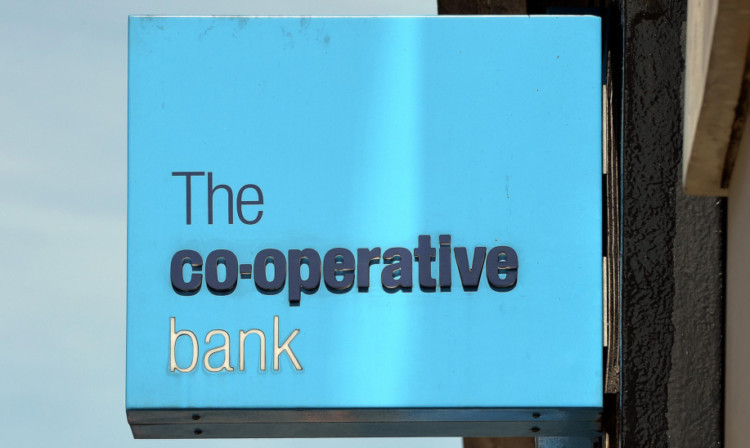The Co-op has admitted its banking arm will not make a profit for years after plunging to a half-year loss of £709.4 million thanks to surging bad debts and the bungled roll-out of a new computer system.
The bank, which counts Celtic Football Club and the Labour Party among its customers, slashed the value of its loans with a £496m impairment charge.
Soured corporate loans, many of which were acquired with its disastrous takeover of Britannia Building Society in 2009, were behind £434m of the writedowns.
And the lender, which styles itself as the ethical alternative to major names, warned job cuts are likely among its 10,000 staff as it draws up a blueprint to squeeze costs.
The bank, part of the wider customer-owned Co-operative Group, also revealed its core tier one capital ratio a key measure of financial strength has slumped to 4.9% from 8.8% a year earlier.
It expects this to improve to between 7% and 9% by the end of the year under plans to plug a £1.5 billion black hole in its finances.
The scale of the bank’s woes was unveiled as its new management, led by former HSBC director Niall Booker, attempts to recover from a catalogue of problems following the Britannia deal.
But the bank warned it will not be a “going concern” if its £1.5bn recapitalisation plan which will force losses on investment bondholders flops. The Co-op added it does not expect the bank to turn a profit for “some years”.
The lender, which has 4.7m customers, also wrote down £148.4m on a new IT system, which had been planned by former management under an ambitious growth strategy.
Designed for a “much bigger institution”, the Co-op yesterday said it does not suit its future needs as a much smaller lender.
And the bank booked another £61m to cover the cost of previous misconduct with £25m for mis-sold payment protection insurance, £26m for credit card and identity theft protection and £10m for mis-sold interest rate swaps.
Its humbling pre-tax losses are a far cry from earlier this year, when the bank harboured ambitions to join the “premier league of UK banking” by acquiring more than 600 branches from Lloyds Banking Group. They compare with £58.6m losses a year earlier.
But in May it was hit by a ratings downgrade and forced to abandon the branch deal. In June it announced plans to plug a £1.5bn capital gap after City watchdog the Prudential Regulation Authority flagged concerns over its capital buffers.
New Co-operative Group boss Euan Sutherland said: “We are absolutely focused on fixing the difficult and complex issues that we have inherited.”
